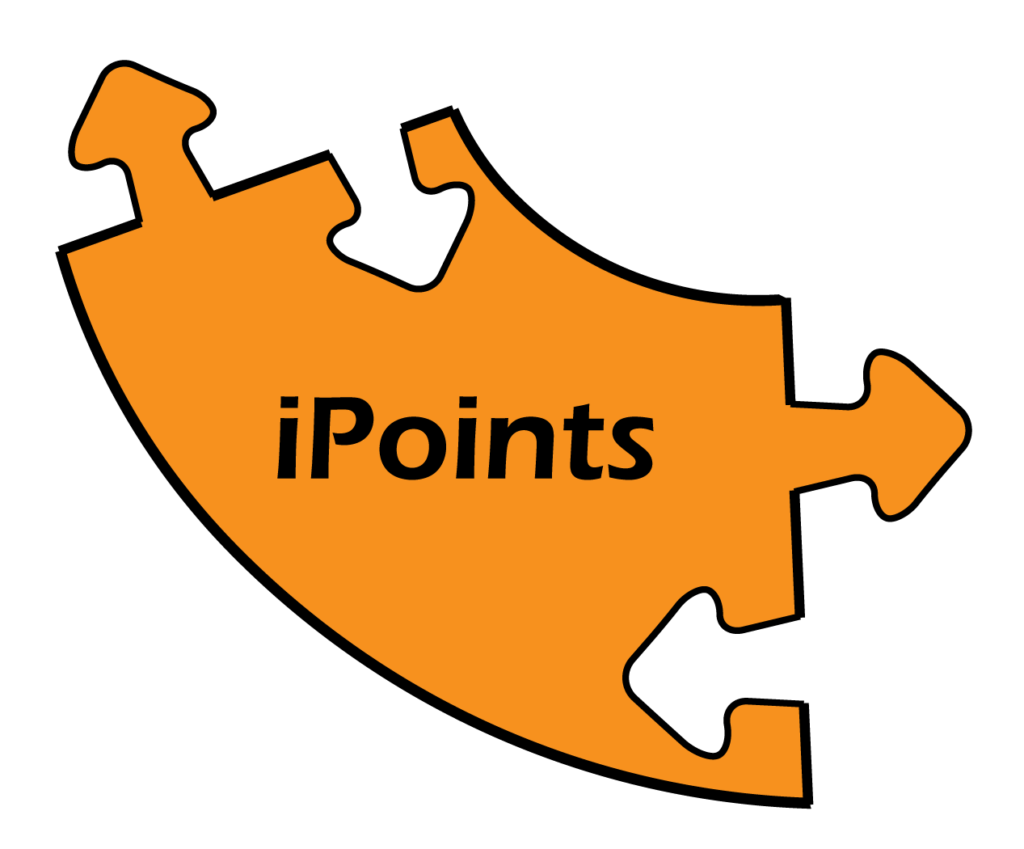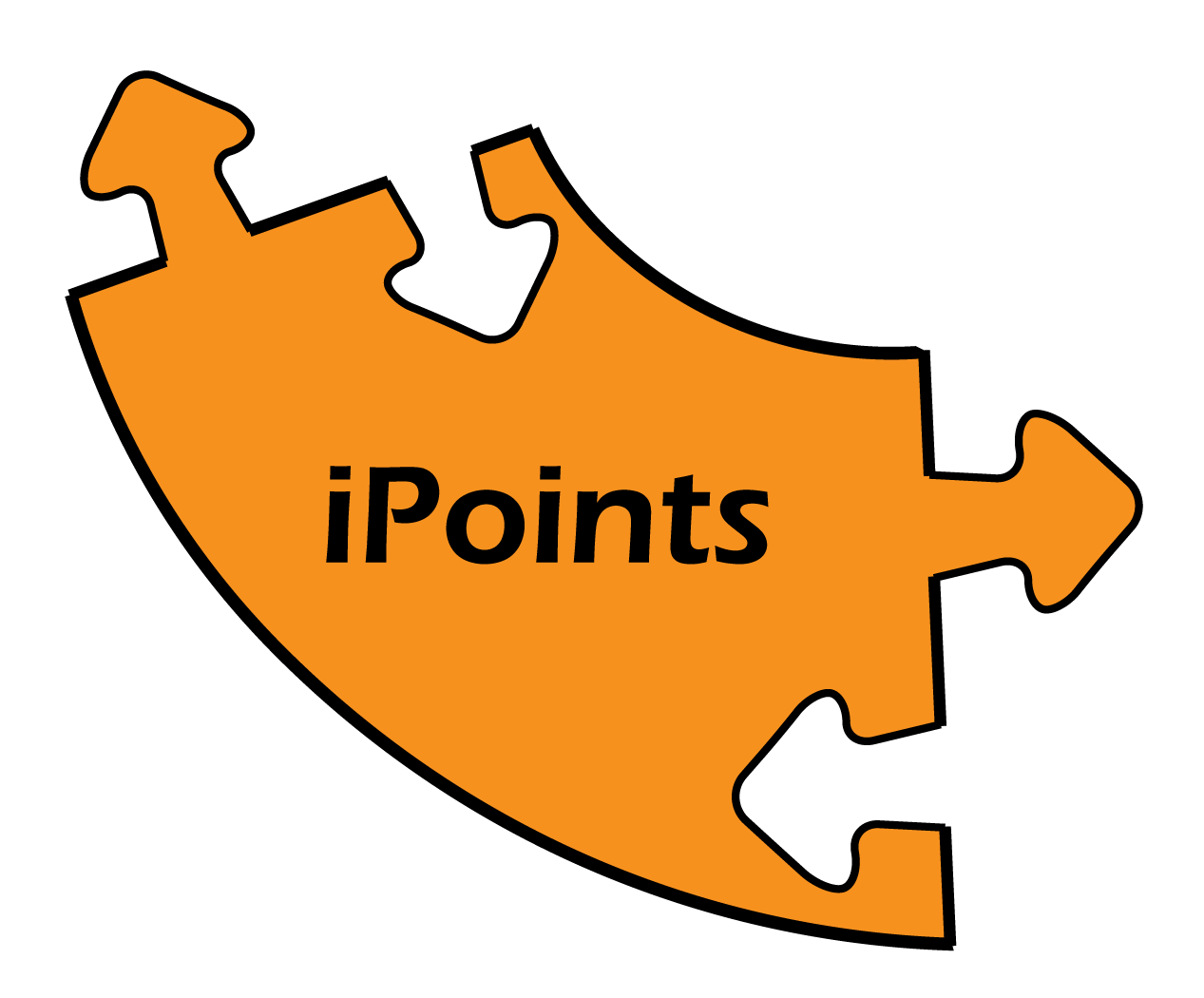Speakers and business coaches everywhere talk about the importance of goals. And they are right. Goals are extremely important. Without the foundation of values, purpose, and destination, however, goals are less effective than they should be and can easily be misguided.
With a foundation of values, purpose, and destination in place we can create goals that build on that foundation.
An Indicator Point (iPoint™) is a specific objective that helps move the organization toward the Ideal Destination. That is what a goal should be, but an iPoint™ has a specific formula for success. There are many references to SMART goals throughout business literature. In order to be an effective tool, an iPoint™ must also encompass those concepts, but the “SMART” acronym is incomplete. Instead, I prefer to look at iPoints™ (or goals) as MILESTONES™:

- Measurable
- Integrated
- Legitimate
- Elevating
- Simple
- Temporal
- Optimistic
- Navigable
- Encompassing
- Specific
An effective iPoint™ must first be Measurable (as in quantity). This can be dollars, size, count, etc. So, an iPoint™ has to include a phrase like “double in sales volume”, “increase headcount by 100”, or “expand our footprint into 3 new countries”. Those are quantifiable and therefore measurable.
So, what is meant by “Integrated”? Every iPoint™ must be fully aligned with the organization’s values, purpose, and Ideal Destination. This should not be assumed. Rather, it is imperative that each iPoint™ is tested against these foundational pillars. You must ask yourself and/or your team, it this goal aligned with our strategy, and is it helping us reach our Ideal Destination?
In terms of an iPoint™, Legitimate refers to legality and ethics. To be a legitimate iPoint™, it must be legal and ethical. Plain and simple.
iPoints™ should pull the organization in an upward direction. Just as importantly though, Elevating is about significant, upward progress. Each iPoint should be like a step on a staircase. Each step provides significant progress upward to the next floor. Have you ever walked up a set of stairs with unusually short steps? Not only does it feel awkward (almost like you are about to trip), but it feels like it takes forever to get to the top. That is what we want to avoid in properly written iPoints™. An iPoint™ should stretch your organization; it should not be easy to achieve. Your organization needs iPoints™ that require some faith to achieve (either by their magnitude or short timeline).
The Simpler the iPoint™ the better it will be. Complex goals are difficult to achieve due to lack of focus and difficulty recognizing achievement. An effectively written (simple) iPoint™ is easy to work towards and easy to recognize when you get there.
Temporal has to do with time. All iPoints™ are time-bound meaning there is a date by which they are to be completed. This helps track progress toward the iPoint™ and the Ideal Destination. Are you on schedule? Behind? Ahead? And if so, by how much?
Similar to (but distinct from) “elevating”, iPoints™ need to be Optimistic. The distinction is subtle, but Optimistic refers to polarity, or positive instead of negative. So, Optimistic iPoints™ promote positive growth or expansion (rather than negative action or retraction). For example, it is better for an organization to focus on increasing employee retention rather than decreasing employee attrition.
Of course, that optimism should be tempered/balanced by realism. So, every iPoint™ does need to be Navigable (achievable). Setting unattainable goals is disheartening and leads to abandoning the process and even the destination.
In addition, iPoints™ taken collectively should be Encompassing. In other words, have you covered all the bases? Are they at regular intervals towards the Ideal Destination (either in progress and/or time)? Are there iPoints™ for each department/division/person? Make sure that the entire voyage from your your organization’s starting point to your Ideal Destination has Indicator Points along the way. And every major step along the way should have a corresponding iPoint™.
Finally, iPoints™ need to be Specific. This brings balance to over-simplification. iPoints™ need to be as Simple as possible, but too simple yields vagueness. In order to be clear to those involved (both for working to achieve them and recognizing when they have been achieved), iPoints™ need specificity. Think in terms of the reporter’s questions… who, what, when, where, and how much (we do not necessarily want the why in an iPoint™, and “how much” is more useful here than simply “how”).
By ensuring that your Indicator Points are truly MILESTONES, you will have clear way-markers on the voyage from where you are now to your Ideal Destination. More importantly, you know the goals to accomplish, each of which will bring you closer to your Ideal Destination.
There is a recommended formula for phrasing iPoints™. They are worded “as if now”, meaning in the present tense. So, “It is now (future date) … we are/have (fill in the blank).” In order to demonstrate the power of these characteristics, we will look first at an example of a well-worded iPoint™ then at a few missing some of these components.
Example of a good iPoint: “It is now December 31, 2020 and Greenfire Innovations just sold the 100th copy of the iNautilus Guide for Organizational Navigation.” Ok, let’s check… Is it Measurable? Yep. Integrated? Yes. Legitimate? Absolutely. Elevating? For sure. Simple? Yep. Temporal? Definitely. Optimistic? Yes. Navigable? It is. Encompassing? Well, not by itself. Specific? Check. Ok, so provided that my other iPoints™ Encompass all of the aspects of my Ideal Destination, we can say that this iPoint™ is valid.
So, what happens when elements are missing? “It is now December 31, 2025 and I have completed the outline for the iNautilus Guide for Personal Navigation…”Wow, all I must do is write one word per week for the next 5 years… and the book will never get done.
“By March 31, 2021, I have completed a big chunk of a book. It has 20,000 words by this point.”Hmmm. What book? Is a “big chunk” having the book nearly complete or just the first couple of chapters? It is still measurable, but there is a giant hole that needs clarity (specificity).
“On March 31, 2021, I have completed the iNautilus Guide for Organizational Navigation.”Sounds kind of like a goal, but it also sounds like a task that can be checked off a list. A goal needs to be quantifiable and it must be “exceedable” by a definable amount… otherwise, it becomes an action step, not an iPoint™.
Each of the MILESTONES components is important in every iPoint™. Every single time. That is how we make goals SMARTER.
Every iPoint™ must be fully aligned with the organization’s values, purpose, and Ideal Destination. This should not be assumed. Rather, it is imperative that each iPoint™ is tested against these foundational pillars. You must ask yourself and/or your team, is this goal aligned with our strategy, and is it helping us reach our Ideal Destination?
This is adapted from a chapter in iNautilus Guide for Organizational Navigation.
